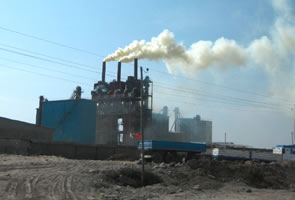New courses for expert training
Expert in zoonotic disease control

In recent years, zoonoses such as influenza, SARS, Ebola hemorrhagic fever, West Nile fever, prion diseases, tuberculosis and rabies have sprung up with high frequency, causing a global-scale threat. The causative agents of zoonoses are originally harmless in their wild host animals, but are occasionally transmitted to other species including humans, causing infectious diseases. Changes in the global environment and human behavior contribute to the creation of more favorable conditions for pathogens to jump from their natural reservoirs to livestock and people.
In the current worldwide situation, zoonotic disease outbreaks often occur in today's world, causing irrevocable damage to human society due to a lack of resources to control them. Experts in the control of such diseases need not only professional knowledge of zoonoses but also a broad perspective and a sense of internationalism that transcend their own fields of specialization.
In order to produce doctors who take on the world leadership in the design and implementation of zoonosis control measures, this course develops scientific and practical expertise on zoonoses and related pathogens. After successful completion of this course, Hokkaido University will certify students who fulfill all requirements necessary for the PhD degree and pass the Examination of Zoonosis Control Expert Certification Program as Doctor of Philosophy in the field of veterinary medicine and Zoonosis Control Expert.
Expert in the control of chemical hazard


Human/animal health and ecosystems are threatened by hazards from chemicals discharged into the environment as a result of man's production activities. These hazards include poisonous metals such as mercury, cadmium and lead, pollutants such as DDT, PCB and dioxins, and emerging pollutants contained in flame-retardants and surfactants known to have caused global-scale contamination. The control of chemical hazards is a serious and important matter for human and animal health.
POPs (Persistent Organic Pollutants) cross international borders and cause global-scale contamination. WHO has reported that over 2 million people die each year due to disease caused by air pollution. Today, around 15,000 species are listed as endangered, and one cause of the threat they face is environmental pollution stemming from chemical emissions. Veterinary science carries a responsibility to ensure the health of animals and humans alike as well as ecosystems. Against this background, there is an urgent need for the field of veterinary science to contribute to the realization of the One Health ideal.
In this context, the program is intended to support the development of human resources who will address chemical hazard control from a holistic viewpoint and exercise leadership to solve the problem of environmental pollution. Students completing the training course and passing the examination will be accredited as experts in chemical hazard control.


















